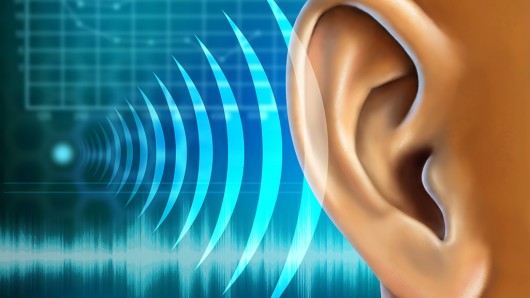Researchers restore hearing in mammals by regenerating auditory hair cells
By Darren Quick
January 10, 2013

Researchers have regenerated auditory hair cells in adult mammals for the first time (Image: Shutterstock)
There is new hope for those of us who have overindulged in loud bands and dread the prospect of old age spent with an ear trumpet clamped to the sides of our heads. Researchers from Massachusetts Eye and Ear and Harvard Medical School have been able to stimulate resident auditory hair cells to become new ones, resulting in partial hearing recovery in mice whose hearing has been damaged by noise trauma.
Auditory hair cells are located in the cochlea of the inner ear and are responsible for translating auditory stimuli into electrical signals that are passed to the brain via the auditory nerve. In mammals, (unlike birds and fish), once these cells are damaged, whether by excessive noise exposure, adding, infections, toxins, or certain antibiotics and cancer drugs, they do not regenerate naturally. This causes what is known as sensorineural hearing loss, the most common form of hearing loss.
While cochlear implants and hearing aids can help, they only address the symptoms and not the root cause of the problem. In a development that could someday lead to the reversal of deafness in humans, researchers have taken a drug that has the ability to generate hair cells when added to stem cells isolated from the ear, and applied it the cochlea of deaf mice.
When applied to the cochlea, the drug inhibited a signal generated by a protein called "Notch" on the surface of the cells that surround hair cells. This resulted in these supporting cells turning into new hair cells, which led to a partial recovery in the hearing of the mice.
“The missing hair cells had been replaced by new hair cells after the drug treatment, and analysis of their location allowed us to correlate the improvement in hearing to the areas where the hair cells were replaced,” said Dr. Albert Edge, senior author of the study. “We show that hair cells can be generated in a damaged cochlea and that hair cell replacement leads to an improvement in hearing.”
The researchers are excited at being the first to demonstrate that adult mammal hair cells have the capacity to regenerate.
“With more research, we think that regeneration of hair cells opens the door to potential therapeutic applications in deafness,” said Dr. Edge, who explains the research in the video below.
The team’s paper is published in the journal Neuron.
Source: Massachusetts Eye and Ear
Copyright © gizmag 2003 - 2012 To subscribe or visit go to: http://www.gizmag.com